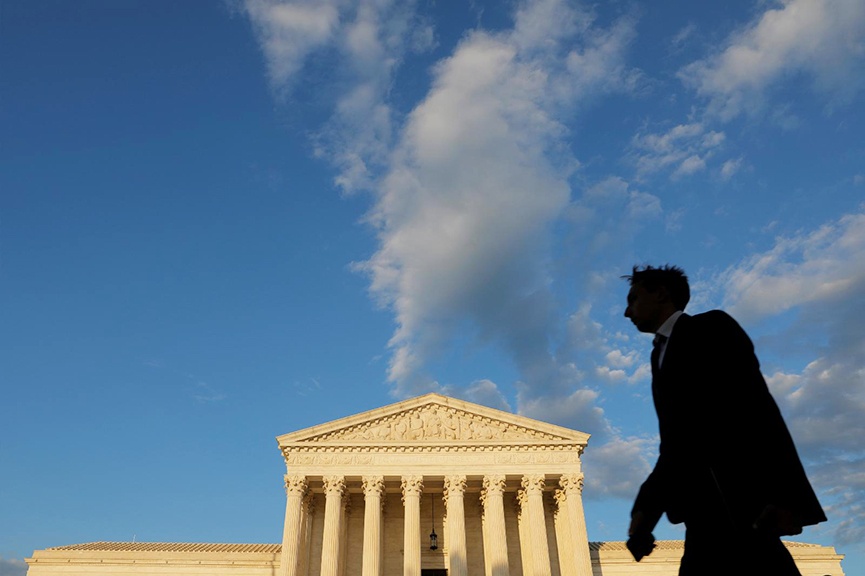
The fight to preserve and protect life from birth to natural death continues with several recent developments.
First, the acting head of the U.S. Food and Drug Administration announced that the agency will not enforce a requirement that the abortion drug mifepristone, sold as Mifeprex and also known as RU-486, must be prescribed after an in-person meeting between a woman and a health care professional. As long as the federal declaration of a public health emergency for COVID-19 remains in place, women will be able to purchase the drug online.
As pro-life advocates have noted, that might be good for the abortion industry but is dangerous for women. “An in-person visit is medically necessary and sound medical practice because it ensures that every woman receives a full evaluation for any contraindications to a medication abortion,” Dr. Christina Francis, chair of the American Association of Pro-Life OB/GYNs, said in a statement after the FDA’s decision was announced.
Women have died from complications after taking the abortion drug even with an in-person visit. The likelihood is that more deaths, including those of the unborn, will follow the FDA’s decision.
It is not unreasonable or an assault on women’s rights to require that every step to protect their health be followed. To do otherwise is an assault on human life and as such does a disservice to the country as a whole and to women in particular.
On another front, the U.S. Supreme Court has announced that it will hear arguments on the constitutionality of a 2018 Mississippi law banning most abortions after 15 weeks of pregnancy.
Many pro-life advocates are hopeful the Supreme Court will use the case to overturn Roe v. Wade, the 1973 case that legalized abortion on demand.
Jeanne Mancini, president of March for Life, noting that 70 percent of Americans believe abortion should be limited to the first three months of pregnancy, said in a statement, “States should be allowed to craft laws that are in line with both public opinion on this issue as well as basic human compassion, instead of the extreme policy that Roe imposed.”
When Mississippi first passed the law, the state’s Catholic bishops applauded the decision. “(We) wish to reaffirm the sacredness of human life from conception until natural death,” they said in a statement at the time. “With Pope St. John Paul II, we recognize abortion as ‘a most serious wound inflicted on society and its culture by the very people who ought to be society’s promoters and defenders.’”
In 2020, the Jackson and Biloxi dioceses filed a friend-of-the-court brief in support of Mississippi Attorney General Lynn Fitch’s petition to the Supreme Court asking it to review the 5th Circuit’s ruling prohibiting the state from enforcing the law. The high court should clarify current law on abortion “in light of a state’s interests in protecting the sanctity of life,” the dioceses’ brief said.
The Catholic Church has long opposed abortion as an attack on the dignity of human life, an attack that degrades the value our society places on not only the lives of those still developing in their mother’s womb, but all lives no matter their condition or station. God instills an inherent value in the life of every person, the poor, the ill, the elderly, the vulnerable, the marginalized, even the repugnant.
And the Church recognizes that in defending the life of the unborn, we cannot abandon the mother. That is why, through agencies like Catholic Charities and other ministries, we try to help women in the midst of a crisis pregnancy find the support they need that will allow them to affirm the value of their life and the life of their child.
Society does not have to settle for an either/or choice between serving the mother or the child. In fact, that kind of thinking is the exact wrong approach to the challenges facing our nation. We must accompany mother AND child.
In a recent letter to the U.S. Conference of Catholic Bishops president concerning a proposal for the U.S. bishops to develop a national policy regarding giving the Eucharist to Catholic politicians who support abortion rights, Cardinal Luis Ladaria, prefect of the Congregation for the Doctrine of the Faith, warned that it would be “misleading” to present abortion and euthanasia as “the only grave matters of Catholic moral and social teaching that demand the fullest level of accountability on the part of Catholics.”
The Church and her teachings have much to offer the faithful and the broader society as it decerns the morality of a whole host of issues. The thread that weaves through them all is the sanctity of life that comes from God, our creator.
We pray that humanity will recognize all life as a gift from God and treat it with the reverence it deserves.









